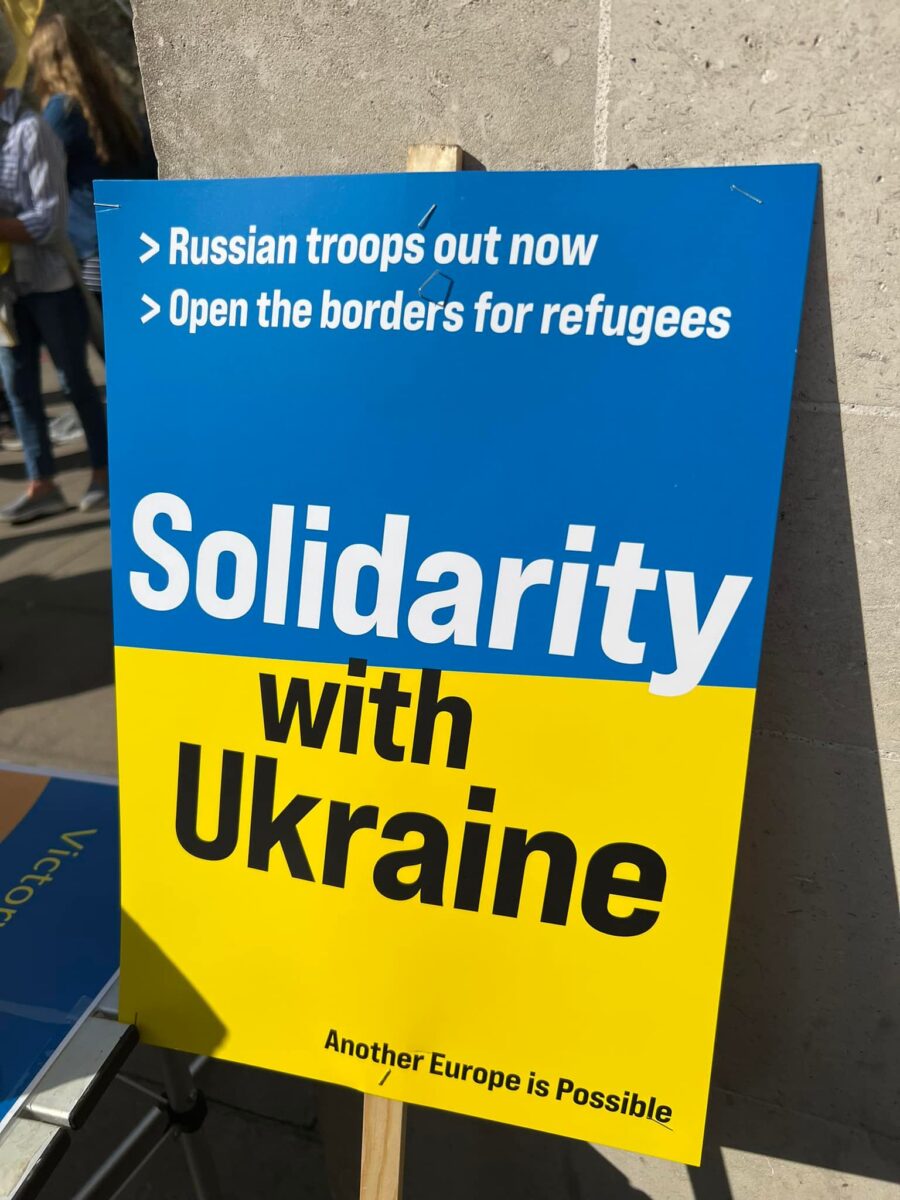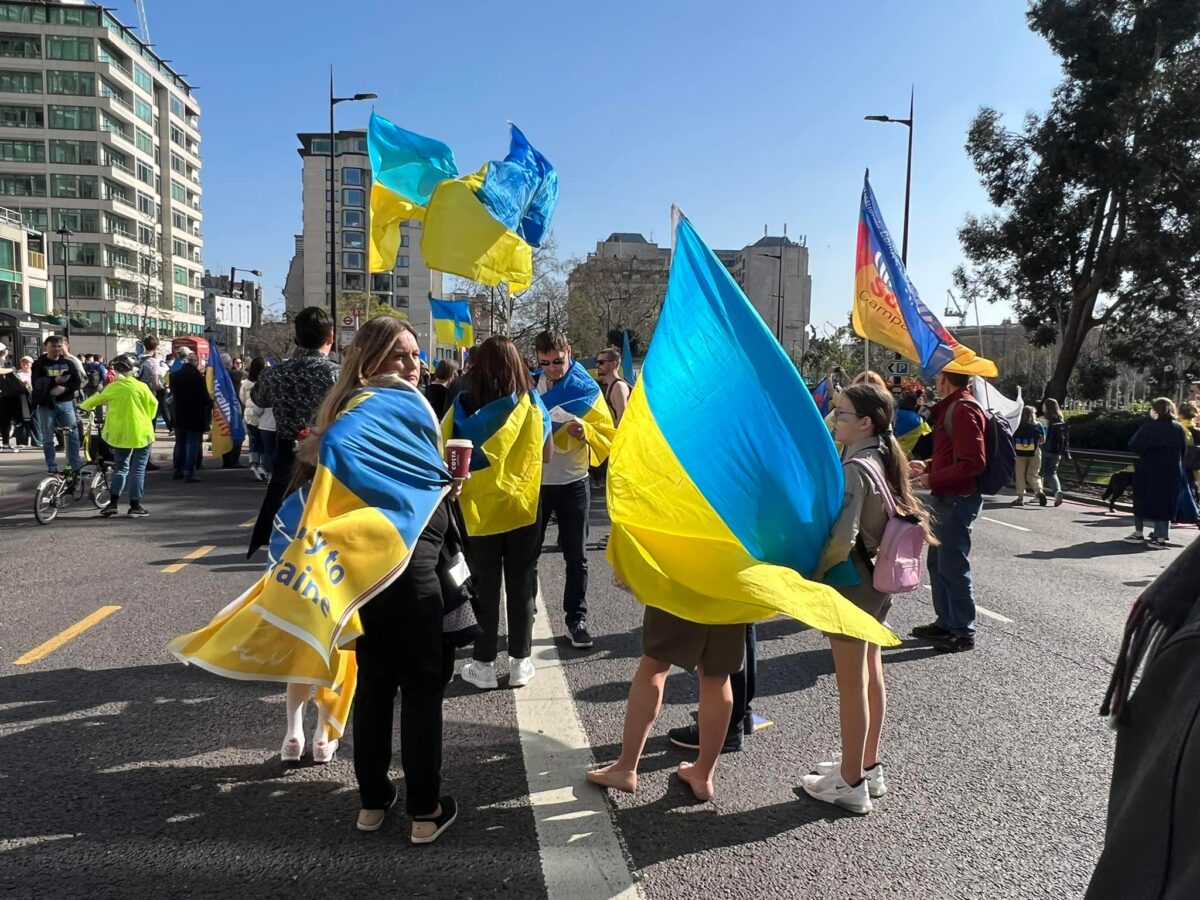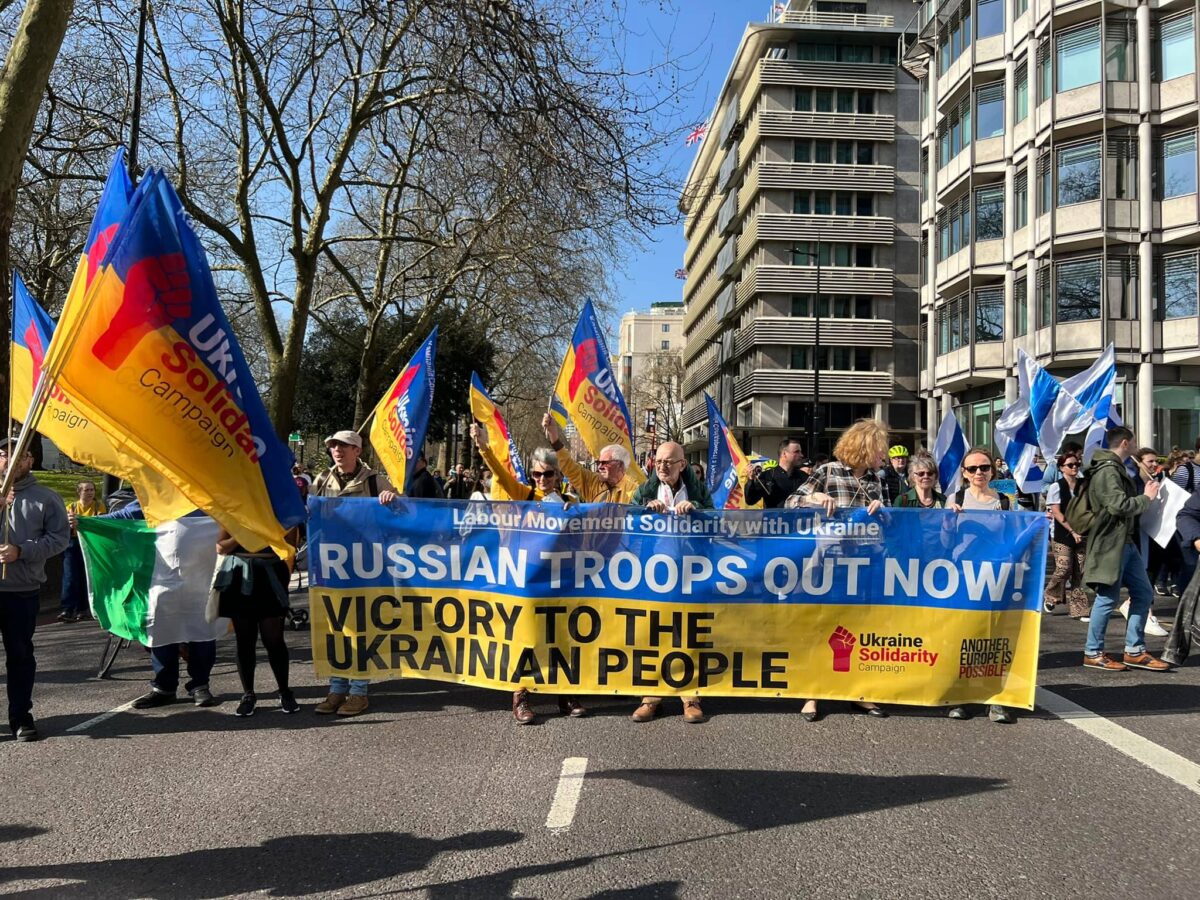Saturday’s March for Ukraine was one of the largest demonstrations I have been on for quite a while- and one of the strangest as the British left was almost entirely absent! But for the left contingent organised by the Ukraine Solidarity Campaign and supported by Another Europe is Possible, Alliance for Workers Liberty and Anti-Capitalist Resistance, not a leaflet or paper seller was to be seen. It was a gazebo-free zone.
Nor were Labour party or trade union branches in evidence either.

However, for very many participants it was their first ever march and this self-defeating absence of the left would probably not even have been noticed.
The marchers took our leaflets readily (and I didn’t see any later discarded or discreetly binned). The placards produced by Another Europe which said “Russian troops out” “Open the borders for refugees” “Solidarity with Ukraine” flew out of our hands- one man tried to buy one as we had all but run out. And I ran out of the 120 badges I had made very quickly.
The march had been called by Sadiq Khan, Mayor of London, and widely promoted on a minimal ‘stand with Ukraine’ basis. This brought onto the streets hundreds of individuals of all ages, families, groups of friends- self-organised and self-motivated rather than through existing networks.
There were many Ukrainians, of course, and also Kazakhs, Belarusians and some Russians with handwritten placards denouncing Putin’s war. A comrade, Pete, pointed out the various national flags he has become accustomed to seeing on protests over the past months.
The sentiment of the demo was overwhelmingly one of humanitarian concern, sympathy for the plight of refugees and people living under bombardment, and rage against a barbaric war of conquest being waged by a great power against its weaker neighbour. The term imperialism was probably not in the vocabulary of most present but they instinctively understood its meaning and were bitterly opposed to it.

The Ukrainian chanting and singing, echoed by the wider crowd, was defiant and proud but there were very few calls for direct NATO intervention or no-fly zones. If there was anti-Russian sentiment it focused on Putin, his regime and his military rather than the ordinary people.
Some of this was echoed in the platform speeches which solidarized with the Russian anti-war movement whilst David Lammy supported the arming of Ukraine to defend itself and also raised the importance of support for refugees with reference to previous waves of people displaced by wars.
All of this underlines the importance of the No War on Ukraine statement calling for the building of the biggest possible anti-war movement around the minimal demands “Russian troops out of Ukraine”, “no to war” and “refugees welcome here”- a basic framework within which supporting organisations can also raise their own additional ideas and demands.

We should circulate this widely and individuals should sign it.
We should also work to ensure the Labour Movement Demonstration for Ukraine called by the PCS union on April 9th is a success.
One final point, it is good that Sadiq Khan called this demonstration rather than let the initiative and leadership of the movement pass to Johnson or more bellicose forces to his right. It is time for the British left to step up and help shape this movement in a progressive direction.
Art Book Review Books Campism Capitalism China Climate Emergency Conservative Government Conservative Party COVID-19 Creeping Fascism Economics EcoSocialism Elections Europe Far-Right Fascism Film Film Review Fourth International France Gaza History Imperialism Iran Israel Italy Keir Starmer Labour Party Long Read Marxism Marxist Theory Migrants Palestine pandemic Protest Review Russia Solidarity Statement Trade Unionism Ukraine United States of America War Women

